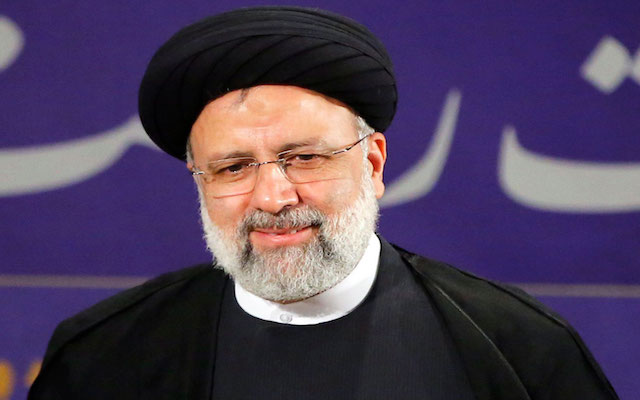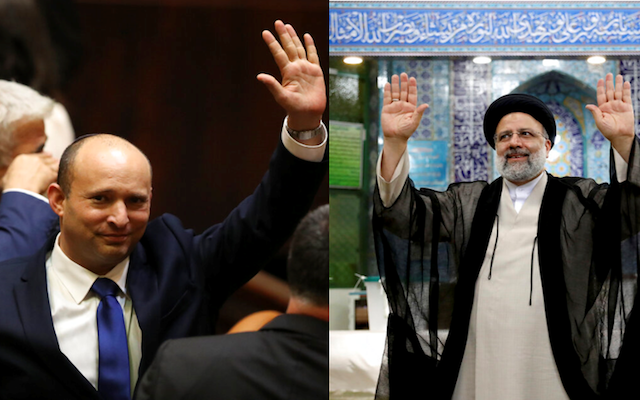Context
Now that US is withdrawing from Afghanistan and that ambiguity is out of the equation the attention is naturally shifting how will the balance the power be achieved. There are obviously several competitors battling it out. In this the critical aspect is the influence of players that have been historically and culturally more engaged in the political and security dynamics of Afghanistan such as Iran, Turkey and other Gulf nations. While Turkey, Iran, and Pakistan have ethnic connections the Gulf nations got involved more in the context of jihad against the Soviets in the 80s and later with supporting the Taliban leading up to 9/11. The Arab connection got dense because of the ideological linkages that gave birth to extremist groups such as Al Qaeda and more recently ISIS.
As the war against extremism is subsiding with great power rivalry taking a center stage the traditional regional civilizational based tussles are becoming apparent in Afghanistan. And as they do the following questions related to the politics of regional players are also becoming prominent. The sequencing and interplay of these will influence the future outcomes. Some of these inquiries are:

1. How will the Afghan withdrawal impact the widely criticized Iranian behavior in the wider Middle East? The newly elected hard-line Iranian leader Ebrahem Raisi is to be accompanied by another hard-liner Neftali Bennett in Israel and that also brings an interesting twist to the political dynamics of the Middle East. While the Biden administration has a different approach than its predecessor towards the Israeli Palestinian conflict Israel has indicated any leniency towards Iran in the on-going Vienna negotiations related to its nuclear program will not be taken lightly. On the other hand the Iranian leader has stated that its missile program and its ‘wider behavior’ in the region is not up for discussion.
The change of US administration has also caused a rethink in Saudi Arabia where matters related to Yemen appear to be calming down, and Saudi Arabia is also in the process of mending its ties with Qatar and Turkey. But if the US Afghan withdrawal will embolden the Iranians to take a more aggressive approach towards US presence in Iraq and other places in the region like Syria, is yet to be seen. Iraqi Prime Minister Mustafa al-Kadhimi is travelling to the US presently to discuss the future of US military presence in Iraq, where it has been under increasing attacks, reportedly from proxies supported by Iran.
Under Trump, Iran had been under the gun, demonstrated by the dramatic step of the elimination of its intelligence chief Qasem Soleimani. Similarly, Israel has also repeatedly carried out strikes against Iranian proxies in Syria particularly.
US withdrawal from Afghanistan, and potentially from Iraq where it presently has around 2,500 soldiers, accompanied by taking out its air defense systems and troops from Saudi Arabia, signals that US is less interested in the Middle East and is ready to settle matters with Iran. After all, since the US achieved self sufficiency in its energy needs, it is the Chinese and the Russians who have more at risk if the Middle East is in turmoil.
If the Iran nuclear talks with the Biden administration prove to be successful, it would likely play out its own historical aspirations in Afghanistan and the wider Middle East. But that also means relegation of the Sunni Arabs and Turks and more importantly, this will require Israeli acquiescence. Nonetheless, these moves can make the customary Turkish, Persian, and Arab civilizational based tussles even more combustible than they already are.
2. Then there is the role of Turkey in Afghanistan and how that is transforming the geopolitical environment – especially after the meeting of President Biden and Erdogan around the NATO summit in June.
Turkey has shown interest in taking over the security of Kabul airport followed by a swift warning from the Taliban. Pakistan’s senior military leadership also visited Turkey and Azerbaijan in June to meet with their counterparts there. It is in unclear if the expression of Turkish interests in Afghanistan was conducted in consultation.
Turkish ethnic (Uzbek and Turkman) influence in Afghanistan can have a positive impact on the negotiated settlement and forming of an inclusive government. At the same time Turkish push for Afghan reconciliation would support its NATO credentials which have recently been questioned including those of a once major non-NATO ally Pakistan that has now refused to allow military bases for US.
Any long-term Turkish military involvement will not be seen as a positive development, especially by India, and would cause Iran to enhance its support as well. Turkish role in NATO led ISAF (International Security Assistance Force) has mostly been in non-combative capacity, as was the case for UAE.
The political and economic overtures by Pakistan in the July 14 SCO Foreign Ministers’ Conference held in Tajikistan can also be seen as offshoots of the growing Pakistan-Turkey cooperation and Pakistan’s buddying Look North posture. While Afghanistan is landlocked, in a way Pakistan has also been stuck between unfriendly India and Afghanistan on the West and the East. Managing the Afghan turmoil is critical for the nation’s outreach to Central Asia.
This growing affinity between Turkey and Pakistan is seen with some alarm by the UAE and Saudi Arabia, in the same manner as Pakistan sees these traditional supporters drifting towards India.
3. On the other hand, UAE and Saudi Arabia appear to be distancing themselves from the Afghan quagmire. This may be due to their growing security and economic ties with India and Israel, which has also complicated their relations with Pakistan on matters related to Kashmir. In the post War Against Extremism world, the Gulf Arabs want to be seen as associated with modernism and to alter the stigma related to their involvement in 9/11.
UAE and Saudi Arabia are also wary of Iranian influence in Afghanistan as they are already entangled in a struggle with them in places like Yemen, Syria and Lebanon. However, there is no desire to extend that theater to Afghanistan because that will bring them right in the middle of US, India and China Pakistan tensions which they would like to avoid at this point.
The Saudi Deputy Defense Minister Khalid Bin Salman visited the US in early July to discuss a whole gamut of affairs that included peace in Yemen Lebanon and countering Iran. The media reports conspicuously missed the larger draw down of US forces and equipment from the region including Saudi Arabia. While the prospects of Saudi-Iran détente in Yemen appear promising it is in no way a settled matter. In the present circumstances the Saudis likely would want to avert opening another front with Iran in Afghanistan.
While Saudi Arabia and UAE may be distancing themselves from the Afghanistan crisis, the Gulf nation of Qatar is an active participant and has hosted numerous rounds of peace talks in Doha as have Turkey and Iran. After the US extended the timeline for the Afghan withdrawal, the Taliban cancelled the April Istanbul peace talks to be held under the UN auspices and which included India, but they did subsequently meet in Doha and Tehran.
Conclusion
The greater alignment between Pakistan, Turkey, China and Russia potentially opens Central Asia for Pakistan, a region previously neglected and rich in energy resources.
The jihad against the Soviets and subsequent War Against Terror plus energy dependence and remittances are the factors that brought Gulf Arabs more directly into the politics of Afghanistan and Pakistan. However, in the future, the country would be seen aligning with Turkey and with the regions and nations under its influence. It also means that it is likely to face more headwind from UAE and Saudi Arabia who are increasingly closer to India and Israel.
In this new configuration, while Persian and Turkish influences in Afghanistan are organic, the presence of India can be seen as an anomaly. Yes, before the division of India and Pakistan the Indian sub-continent had historical inter-linkages but the direction of that influence was one-way and that is what continues to bedevil India. While the Indian soft culture has penetrated Afghanistan, and for that matter Pakistan as well, but that is deeply despised by its conservative segments. And there was one more reason, Turkish TV drama’s have made inroads as a counter.
Ultimately, Turkey, Pakistan, and Iran should strive towards a treaty of the sorts of Sykes-Picot Agreement of 1916 between UK and France with consent from Russian Empire and Kingdom of Italy on their spheres of influence as the Ottoman Empire was breaking up. Not to suggest that Afghanistan is being partitioned but to ensure its sovereignty and avert any conflict. But the prerequisite for that would be some sort of détente between US, China and Russia.





